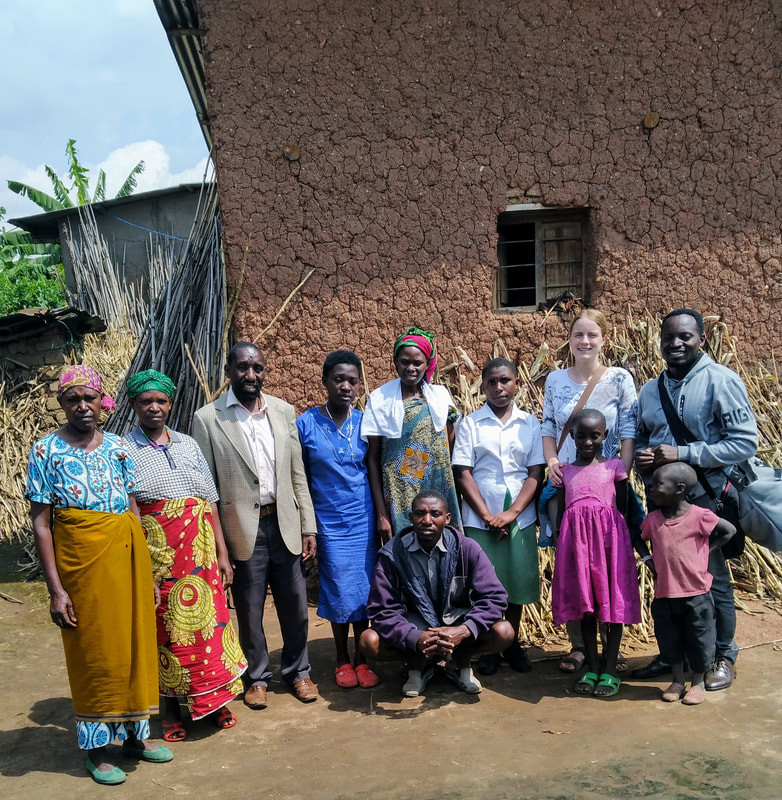|
This is part of a series where I write about my stay in Rwanda and Uganda and what I learned that might be helpful from an EA perspective.
You can see the full list of articles here, which I will add to as they come out. This is my favorite conversation I had while I was staying with a family in a Rwandan village. I was speaking to a group of eight or so people who were baffled at my interest in their pig and goats (I was also researching animal welfare in developing world contexts). After one such question, one of the men asked me something in return. “Does your family have goats?” I smiled a little. “No, we don’t have any goats.” “Pigs?” “No, no pigs either.” “You must at least have a few chickens!” “Not even chickens.” I could see his wheels turning. I’m rich. How could I not have livestock? “Does your family have any animals?” “Yep. We have a dog and a cat.” They all burst out laughing. This was the funniest thing they had heard me say. “A dog and a cat?” he asked after he’d caught his breath. “Why? Do you eat cats and dogs in Canada?” And thus began a long conversation about the concept of having pets and being friends with animals. I’m sure they left that conversation marveling at how crazy Westerners are, to have all that money and waste it on animals you can’t even eat or use for fertilizer. This is illustrative of how isolated the people in the village were, where they hadn’t heard of the concepts of dogs as pets before. I was used to India, where despite often being similarly poor, they still watched movies or had exposure to the wider world. In this village, even the relatively well-off university educated person might watch two Rwandan movies annually, let alone movies from other countries. Another question they asked was illustrative of this. Every culture has standard questions you ask when you’re first getting to know somebody. Where are you from? What do you do? In Rwanda, “where are you from?” was definitely the usual first question. The next question, though, was what crops my family grew. They were always floored when I told them we didn’t grow anything. “Where do you get your food?!” they’d ask, baffled. “The market.” Mind, most of them also bought food from the market, but the majority of their food they grew themselves. The fact that I bought all of my food from stores was strange to them. This wouldn’t be so surprising if it weren’t for the fact that most people living in Kigali, the capital city just a two hour bus ride away, also only buy their food from the market. The fact that most people in this village were unaware of such a lifestyle really highlights the limited knowledge they have of the rest of the world. This is not only because of a lack of education, but generally also from lack of radio and television. In India people also often had low literacy, but it was common to crowd around TVs owned by others in the community, which gave them some understanding of lives far away. Radio was also much more common in India. I rarely heard anybody playing radio in this village (in Kigali it was different) and if they were, it was just music. I think this is in part because many of the houses had little or no electricity. For TV, I only saw one where a crowd watched and that was in the neighboring small town and was at a place where you bet on sports and so only featured matches. The implications of this from a charity perspective are that you really want to be careful about making assumptions about “common knowledge”. You might already know that a lot of people in developing countries still believe that illness is caused by witchdoctors, but that can be just the tip of the iceberg. For any behavior change interventions, you should spend a lot of time talking to locals to learn what would resonate with them. If you liked this post you might also like:
0 Comments
Leave a Reply. |
Popular postsThe Parable of the Boy Who Cried 5% Chance of Wolf
The most important lesson I learned after ten years in EA Why fun writing can save lives Full List Kat WoodsI'm an effective altruist who co-founded Nonlinear, Charity Entrepreneurship, and Charity Science Health Archives
June 2024
Categories |
Proudly powered by Weebly

 RSS Feed
RSS Feed